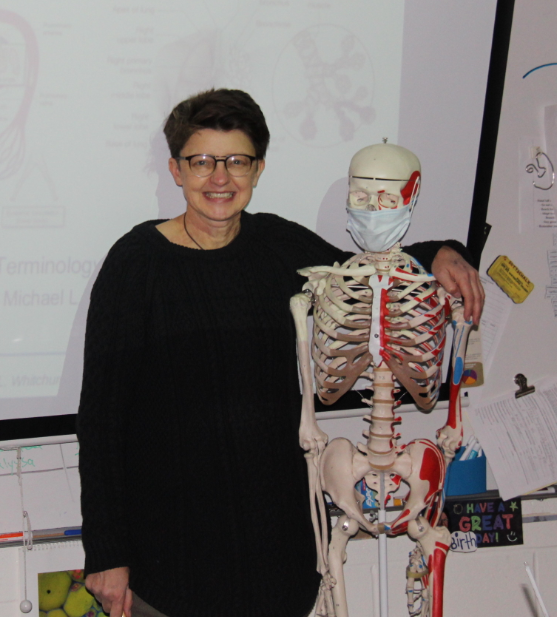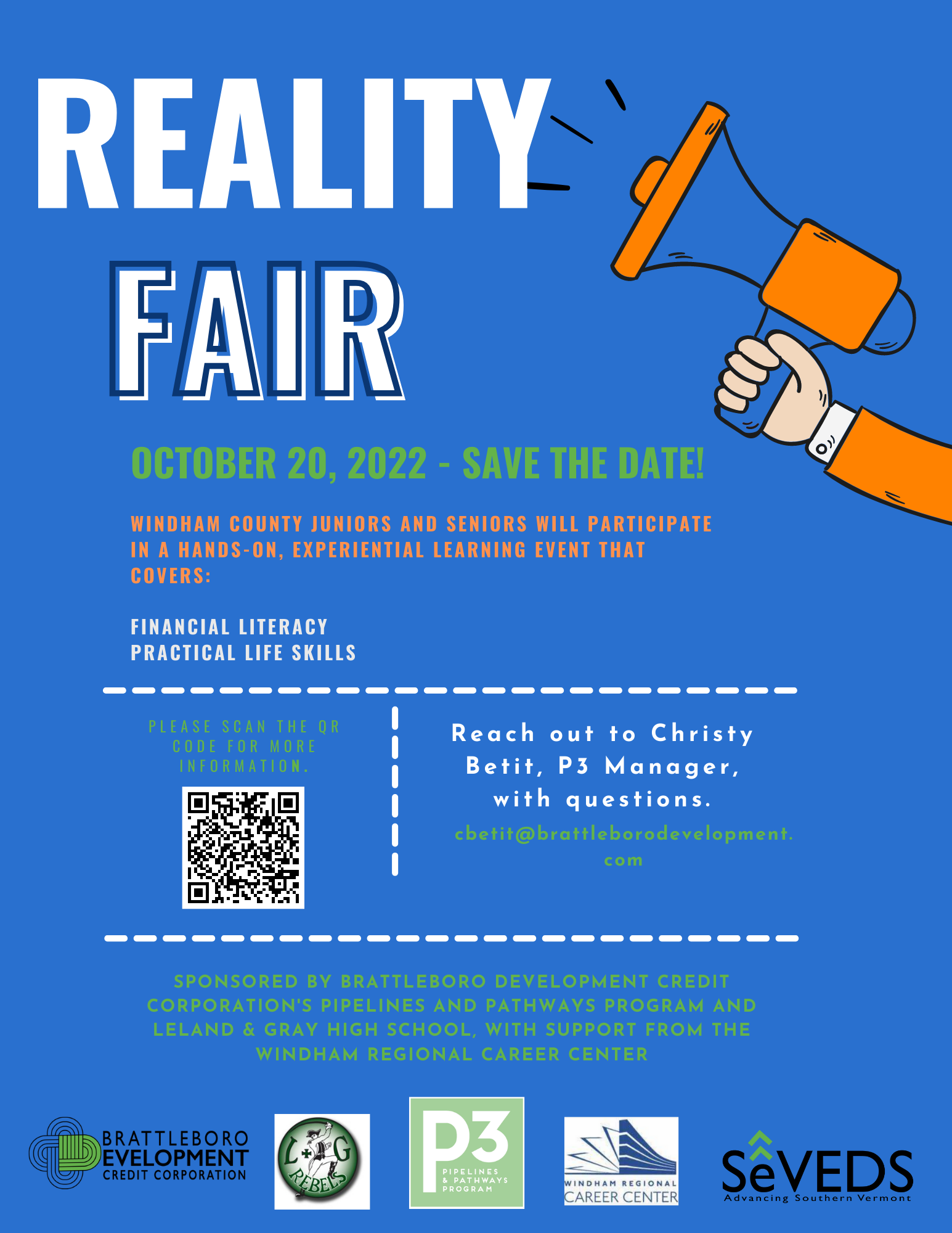
P3 Teacher Feature #1 – Celebrating Windham County’s Career Education Game-Changers
Photo Credit: Ozzee Haskell, BFUHS Senior
Remember that teacher who first got you thinking about what you might do with your life? That special educator who connected the big ideas, or daily skill-building, to things out in the real world? The P3 Teacher Feature series pays homage to some of the educational partners who exemplify the mission of BDCC’s Pipelines and Pathways Program for high school career education. These heroes link learning with life goals, by connecting students with career options in a variety of ways, from speaker panels to co-op and job shadow opportunities
This first Teacher Feature highlights Kristin Gottschalk, Science & Health teacher and Science Department Coordinator at BFUHS. Kristin just partnered with P3 to put on a STEM professionals panel – read more here.
How long have you been a teacher? This is my 25th year at BFUHS. Before that I did 3 years of environmental education at various places in New England, and I taught for 1 year at a small independent high school in Providence RI.
What did you want to “be” when you grew up? I went through a lot of phases- architect, psychologist, etc. I didn’t decide on teaching until relatively late.
What is your educational background? I grew up in Illinois and went to Kalamazoo College in Michigan for undergraduate work. I was a psychology major, which still informs my Health teaching. After a few years of seasonal environmental education work, I went to Antioch University in Keene NH and earned a Master of Science in Environmental Studies.
What made you decide to become a teacher? I love working with teenagers. I find them to be fun and funny and open to new ideas, unlike many adults. High schoolers in particular are old enough to discuss some complex subjects, but still young enough to want to have fun doing it.
What is your favorite topic to teach within your specialty? That’s a hard one! I love Anatomy & Physiology because I’m always learning new things myself. And prepping the students who want to go into a medical career is very rewarding. Last spring, my mom was up at Dartmouth Hitchcock Medical Center. When I was visiting her I saw a former Anatomy student working as a nurse on her floor! I also love teaching ecology, as environmental science was my first “science love”. Teaching students how to identify local trees is particularly fun, and I love seeing their amazing progress. Once a student in my ecology class told me that she could identify the trees she saw out the bus window as the bus zipped along at 30mph.
What’s the most fun part of your job? I love developing a rapport with a whole class and building a sense of class community. It may include inside jokes or fun review games. It’s much harder to establish that feeling during hybrid instruction. Another amazing part of my job is having students as 10th graders in biology class and seeing them grow into serious students by senior year, with career goals and plans.
What’s the least fun part of your job? My least favorite thing about teaching is the educational gimmicks and jargon that come down the pike every few years. We are often encouraged or required to get trained in new pedagogical strategies, and most of them are just bells & whistles. They often have ridiculous names (i.e., “brain-based learning”)
How and why do you integrate career education topics into your curriculum? I do this every chance I get! A couple weeks ago I gave blood and asked the Red Cross workers what training they had and how they got into that work. I then reported to my Anat & Phys class what they told me. I have had various health care professionals as guest speakers in my Anat & Phys class over the years. I’ve also had wildlife biologists and forestry experts visit my class.
What types of careers are related to your teaching specialty? Any health care job, from nursing assistant to surgeon, is relevant to my Anat & Phys class, and I have students interested in the full range of health care jobs. As for my ecology class, I’ve had several students go on to pursue being a game warden or a forester or landscaper.
What advice would you give to students who want to enter a career related to your teaching specialty? For juniors & seniors in high school, they are just entering that stage of life where they need to work hard in school not so that they don’t get in trouble by their parents, but so they can create the life they want. It’s a paradigm shift for many of them. So my advice to them is to try to shift how they see their education.
Teacher Feature is a series to celebrate educators who are leaders in career education. It is produced by the Pipelines and Pathways Program (P3) which provides employment oriented career-planning for the region’s high school students. It brings training in 21st Century skills, work-based learning, and personal learning plan (PLP) engagement opportunities to all public high schools in Windham County. Pipelines & Pathways is a Brattleboro Development Credit Corporation (BDCC) Workforce Center of Excellence program based on strategies to increase the size and quality of the workforce developed by Southeastern Vermont Economic Development Strategies (SeVEDS). For more information please visit https://brattleborodevelopment.com/ To nominate an outstanding teacher for our series, please reach out to cbetit@brattleborodevelopment.com
Funding for P3 is provided by the McClure Foundation, Vermont Training Program, Vermont Community Foundation, the Windham County Economic Development Program, Thompson Trust, People’s United Bank, Tom Smith & Omega Optical, and the Whitney Blake Company in Bellows Falls.



